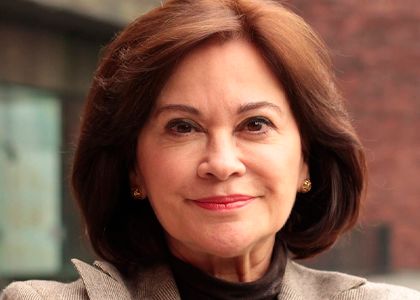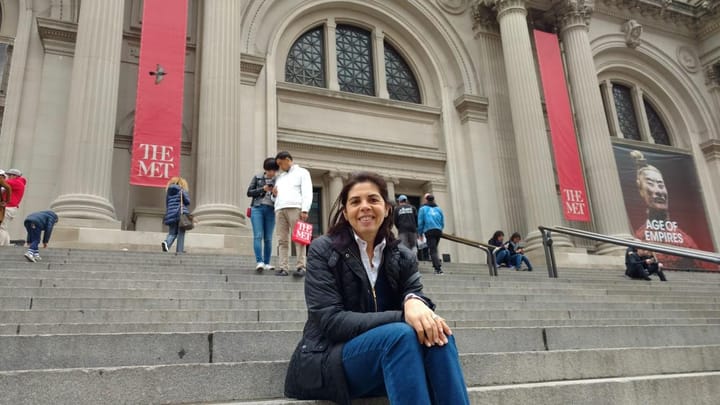
Por Cecilia Soto, ex candidata a la presidencia de la República, entre muchos cargos que ha tenido en su carrera política.

Es frecuente que cuando una recurre a la “a” o a la “e” para utilizar lenguaje incluyente se susciten risitas o francas protestas: “¿Por qué insistes en esa ridiculez cuando la terminación en ‘o’ incluye a hombres y mujeres”?. Pues resulta que esa pretendida neutralidad de la terminación en “o” fue una de las razones o más bien, el pretexto, por el que las mujeres mexicanas nos tardamos tanto en tener derecho al voto.
La Constitución de 1917 abreva ampliamente del documento de 1857. En ambos documentos en el artículo 34 que define quiénes son ciudadanos se utiliza a la inocente “o”. En ambos textos el artículo 34 define de forma idéntica quienes son ciudadanos:
Artículo 34: Son ciudadanos de la República todos los que, teniendo la calidad de mexicanos, reúnan las siguientes:
Haber cumplido 18 años si se es casado o 21 si no lo es;
Tener un modo honesto de vivir.
El artículo 35 es también idéntico en ambas constituciones:
Artículo 35: Son prerrogativas de los ciudadanos:
I. Votar en las elecciones populares
II. Poder ser votado para todos los cargos de elección popular y nombrado para cualquier otro empleo o comisión, teniendo las calidades que establezca la ley.
IV. Tomar las armas en el Ejército o la Guardia Nacional…
De tal manera que si “ciudadanos” incluye a hombres y mujeres y todos pueden votar, qué tal si lo hacemos explícito, propuso Hermila Galindo, secretaria de Venustiano Carranza, durante los trabajos del Constituyente. Como se recordará, Hermila envió una iniciativa para otorgar el voto a las mujeres, pero fue rechazado por 166 votos en contra y 2 a favor.
Y es que la ley secundaria del artículo 35 de la constitución de 1857 explicitaba que no, ciudadanos con derecho a voto, no incluía a las mujeres. En el artículo 8 de la Ley Orgánica Electoral se decía:
No tendrán derecho al voto activo ni pasivo en las elecciones:
Y después de una lista de posibles delincuentes incluye:
5to, Los vagos mal entretenidos
6to. Los tahúres de profesión.
7mo. Los que son ebrios consuetudinarios.
El mismo artículo en la Ley para la Elección de los Poderes Federales de 1918 es muy parecido:
“No pueden ser electores: los vagos y los mendigos habituales; los que vivan de la beneficencia pública o privada; los que estén sujetos a proceso criminal por delito que merezca pena corporal; los condenados a pena corporal, por el tiempo que dure la condena; los condenados por sentencia ejecutoria a la pena de suspensión del voto; los prófugos de la justicia; los que han sido privados de la tutela por mal manejo de fondos o por infidelidad; los que tengan o hayan tenido casas de prostitución pública o clandestina; los que vivan a expensas de una mujer pública; los que hayan sufrido dos condenas por embriaguez habitual y manifiesta; los tahúres, y todos los condenados por delitos de corrupción electoral.”
Y en su artículo 37 plantea que la “o”, no tiene nada de neutra:
Son electores, y por lo tanto tienen derecho a ser inscritos en las listas del censo electoral de la sección de su domicilio respectivo, todos los mexicanos varones mayores de 18 años…etc.
Así que esta ley, aprobada en julio de 1918, en el México ultra revolucionario de aquel entonces, acababa de equiparar a las mujeres con los vagos, los tahúres o los ebrios consuetudinarios.
Pero como la Constitución - a diferencia de la ley secundaria- de hecho no prohibía el voto a las mujeres, dado que ahí sí la “o” era neutra, comenzó la efervescencia por el voto municipal y las diputaciones locales. Felipe Carrillo Puerto, gobernador de Yucatán, llamó en 1922, al Congreso Nacional Feminista, sucesor del Congreso de 1916. E incluyó a las mujeres en candidaturas locales. Después del asesinato de Carrillo Puerto en 1924, tres diputadas locales, salieron huyendo de su estado.
Más tarde, el Diario Oficial de la Federación publicó en 1947, la ley que permitía a las mujeres votar y ser votadas en las elecciones municipales.
Recién inaugurado el gobierno del general Lázaro Cárdenas, en enero de 1935, iniciaron los rumores del otorgamiento del voto a las mujeres, por una frase críptica del presidente. Y volvió el debate sobre la neutralidad o no de la “o” con la que terminaba la palabra ciudadano. Los diputados solucionaron rápido el debate al concluir que el párrafo IV del artículo 35 de la Constitución, planteaba que era prerrogativa de los ciudadanos “tomar las armas en el Ejército o la Guardia Nacional” y como era imposible que las mujeres participaran en las fuerzas armadas entonces, los diputados constituyentes obviamente no podían haber incluido a las mujeres en el derecho al voto. Cuando les convino, se les olvidó el ejemplo de las adelitas y de tantas mujeres que contribuyeron al esfuerzo revolucionario.
En 1937, con la efervescencia socialista del cardenismo y la proliferación de organismos y movimientos de mujeres que exigían el voto y otros derechos, volvió a plantearse la posibilidad de una reforma constitucional. El Presidente envió una iniciativa al Senado que se aprobó. La minuta pasó también en la Cámara de Diputados y después, milagrosamente, fue aprobada por la mayoría de los congresos estatales. Sólo faltó que una vez que el Presidente firmara el decreto, la Cámara de Diputados lo mandara publicar en el Diario Oficial de la Federación. Esto nunca sucedió porque, como lo han documentado varias investigadoras, se tuvo miedo a que las mujeres, fueran manipuladas por la iglesia católica y por movimientos de oposición al cardenismo. Tuvimos que esperar 16 años más.
Entre las constituciones de 1857 y 1917, hubo 60 años. Después pasaron 20 años para el serio intento de reforma de 1937 y otros 16 para la reforma de 1953, cuyos 70 años celebramos este 17 de octubre, pausas que se fueron acortando casi exponencialmente. Lo mismo sucede con las reformas que va ganando el movimiento feminista para obtener candidaturas. 12 años entre las primeras cuotas vinculantes en el año 2000 y la histórica sentencia 12/624 del Tribunal Electoral que obligaba a los partidos a cumplir la cuota 40/60. 2 años más para la reforma constitucional de la paridad. 5 años para la reforma constitucional de 2019, de la “paridad en todo”. Y cuatro años, 2023, para que dos mujeres sean confirmadas como las principales candidatas a la Presidencia de la República. Hay mucho que celebrar en este 70 aniversario del voto femenino y mucho que corregir y arreglar para demostrar que mujeres autónomas, feministas o cercanas a las causas de las mujeres, podemos entregar un mundo mejor a las jóvenes que vienen exigiendo seguridad, paz y oportunidades generosas para ellas.
Nota: Leí los excelentes trabajos de Patricia Galeana, Gabriela Cano, Humberto Monteón y Gabriela María Luisa Riquelme para documentar la hoja de ruta que nos llevó a conseguir la reforma de 1953. Gracias a ellas y a él.
Las opiniones expresadas son responsabilidad de sus autoras y son absolutamente independientes a la postura y línea editorial de Opinión 51.
Más de 150 opiniones a través de 100 columnistas te esperan por menos de un libro al mes.






Comments ()